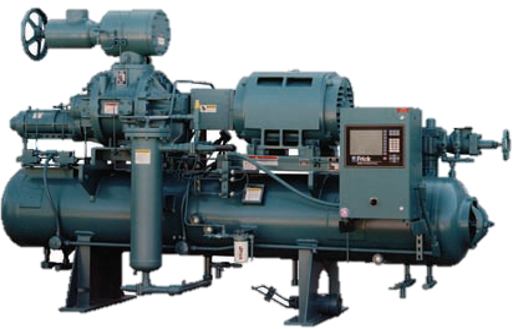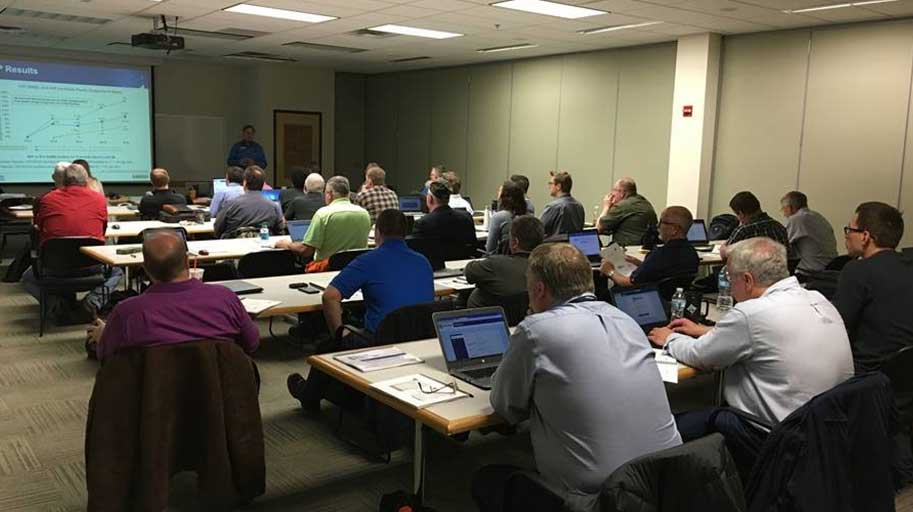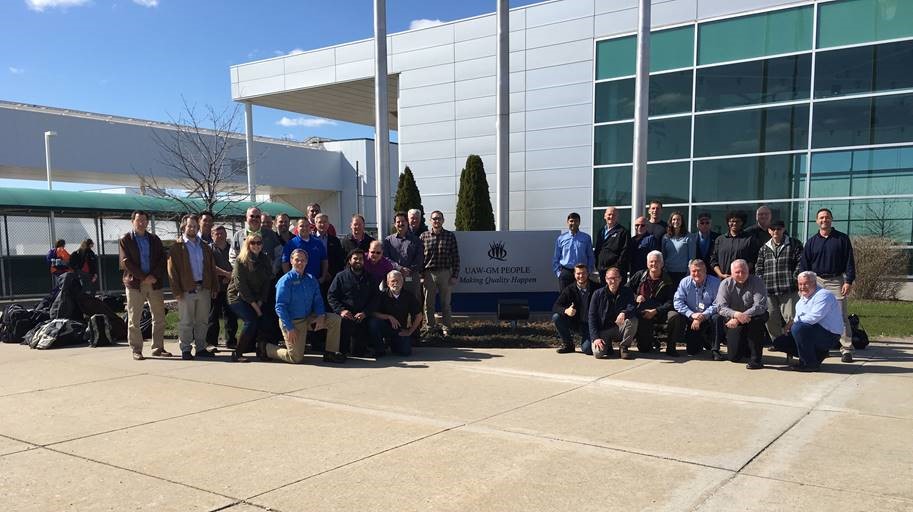Due the challenges created by COVID-19 pandemic, manufacturers throughout the world have been trying to determine how to safely open and operate their manufacturing plants. To minimize the risk of infection, many manufacturers have reduced the number of people allowed into their plants without compromising the production continuity. This makes delivery of INPLTs challenging in the traditional in-person fashion. To address this challenge and continue providing INPLTs during this difficult time, Better Plants program piloted Virtual cohort In-Plant Trainings (VINPLTs) on process heating systems, ammonia industrial refrigeration systems and wastewater treatment operations. The VINPLT pilots have been very well received and participants have requested for additional trainings on more topics.
VINPLTs are performed by industrial experts and Technical Account Managers using online video communication technologies. The VINPLTs comprise eight (8) 2-hour online training sessions that are delivered twice per week for four (4) consecutive weeks. The application of VINPLTs Pilot is free and open to all Better Plants program partners. Each VINPLT event is typically limited to 30 participants from 6–8 companies or facilities. We will roll out VINPLTs first on two (2) topics in Oct 2020: Ammonia Industrial Refrigeration Systems and Wastewater Treatment Processes.
To maximize the benefits from attending VINPLTs, homework assignments will be given to participants at the end of each session and be due the following week. Each session has 30 minutes at the beginning to address questions related to training materials and homework assignments. These homework assignments are designed to enhance participants’ understanding on the energy systems, identify and quantify energy savings opportunities. At the end of the training events, each participating facility is expected to create some slides to summarize identified energy savings opportunities with estimated savings and present to company management teams. The subject matter experts and TAMs will help partner personnel develop these opportunities and associated project justification content, e.g. technical analyses, and payback calculations.
If operational data collection is needed, diagnostic equipment can be arranged and shipped to partners. The Better Plants diagnostic equipment is available on a first come, first serve basis.
January 10 to February 28, 2023; every Tuesday 10:00 AM–12:30 PM ET (2.0-hour formal training + optional 0.5-hour Q&A)
Week 1 – January 10, 2023 – Fundamentals of Refrigeration
During the first session, presenters will orient participants to the Better Plants program and share success stories from other sites who have taken energy management to the next level. Participants will learn about energy basics and reading utility bills, as well as fundamentals around refrigeration and introduction to compressors.
Week 2 – January 17, 2023 – Compressors Cont’d
Training on compressors and how to run them efficiently will continue. This will include reviewing different opportunities related to lift and part load and maintenance. Participants will prepare to review energy savings opportunities on the compressors for report out in next session.
Week 3 – January 24, 2023 – Condensers
In Week 3, focus will be on condensers, where heat rejection occurs. Similar to compressors, the day will start with review of condenser basics, including key components, terminology, and types. The session will wrap-up with review of condenser maintenance and how it relates to energy savings.
Week 4 – January 31, 2023 – Condensers Cont’d
Session 4 focuses on diving into the homework and what participants found at their sites, as well as reviewing how to efficiently control condenser capacity with VFDs and wet-bulb approach.
Week 5 – February 7, 2023 – Evaporators
For Week 5, we’ll shift to the last refrigeration subsystem, evaporators. Participants will spend time on evaporator basics, standard control strategies and how to troubleshoot poor performance.
Week 6 – February 14, 2023 – Defrost
For the 6th session, we’ll expand on evaporators and dive into defrost. Key focus will be on defrost basics, the different ways we can optimize, and how to troubleshoot.
Week 7 – February 21, 2023 – Review
Wrapping this all together, we’ll spend Session 7 on bringing all the previous content together to review key opportunities for optimization and making sure participants have a solid foundation to start making changes to their own systems.
Week 8 – February 28, 2023 – Top Projects & Closeout
In the final week, participants will present and discuss a summary presentation based on the results of energy saving efforts on their own systems. VINPLT participants could invite their upper management to attend this wrap-up session. Once completed, VINPLT attendees are given a Certification of Completion from US DOE.
Steve Koski has wide-ranging experience providing technical engineering services, with a particular focus on refrigeration, cold storage, and compressed air processes and systems. Since 2001, he has completed over 500 projects and led over 60 facility RCx projects for industrial customers across North America. Steve has also led several SEM engagements and taught nearly 20 subsystem-specific trainings. He has a BS in Mechanical Engineering and has been a PE since 2002. Steve is also certified AIRMaster+ Specialist.
Tom Simenc is an outstanding technical communicator who specializes in helping Cascade’s customers implement industrial energy-efficiency solutions. He provides engineering services to Idaho Power’s demand-side management (DSM) programs with a focus on refrigeration systems and strategic energy management (SEM) coaching. He has a BS in Mechanical Engineering and is a licensed professional engineer (PE).




